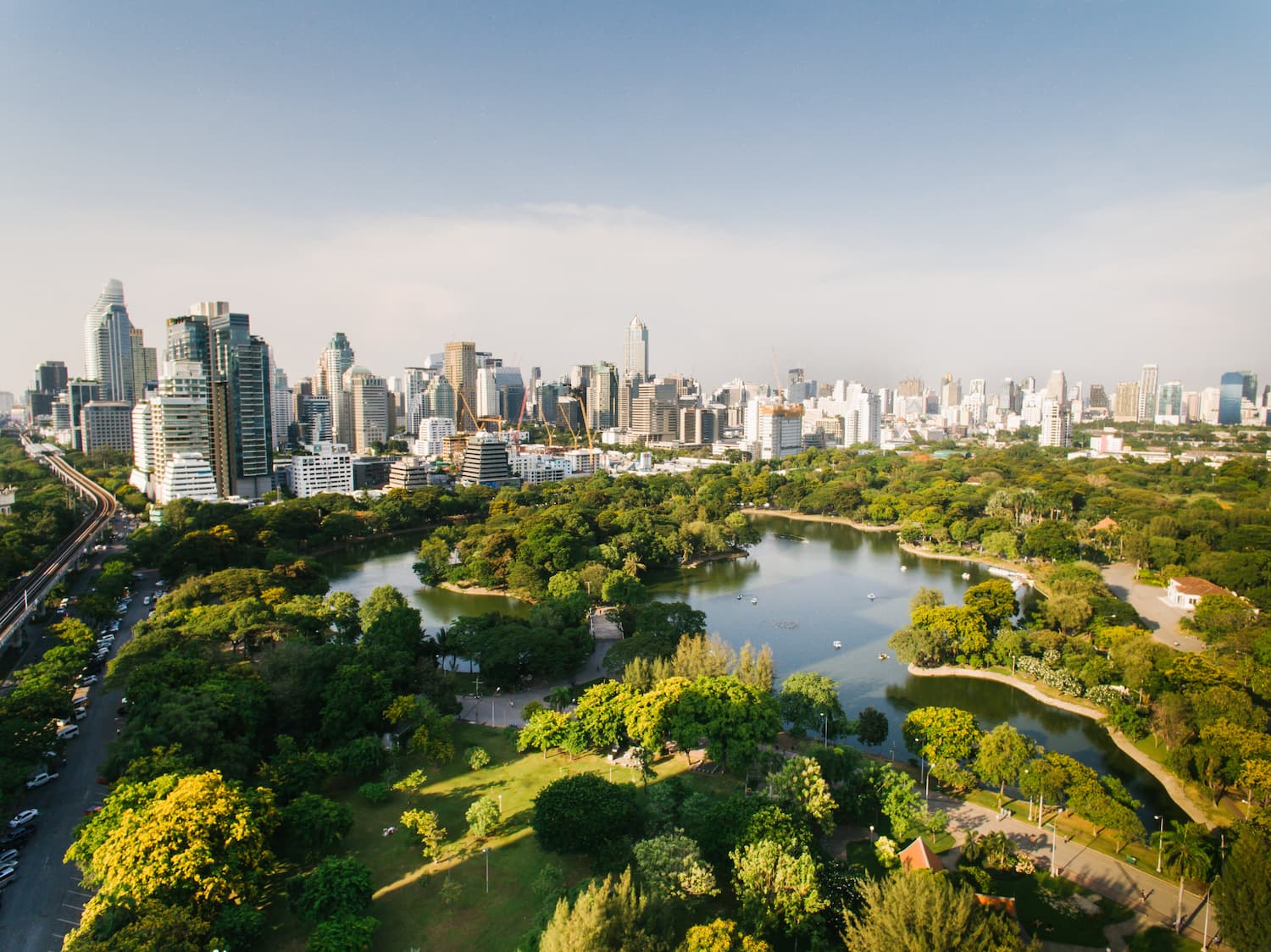The Board of Directors of Thailand’s Board of Investment’s (BOI) have approved measures to promote investments aimed at addressing PM2.5 particulate pollution, according to BOI’s secretary-general, Narit Therdsteerasukdi.
These measures include expanding the support scope via investment promotion measures for community and social development. They encompass backing local organizations and groups of farmers to enhance environmental standards within communities.

Lumpini Park in Bangkok. (Photo: Pexels)
This would include forest management in specific areas, such as community forests, conservation forests, and national forest reserves, to alleviate the nationwide problem of PM2.5 particulate pollution.
BOI also emphasizes promotion of environmentally less harmful investment, as well as pollution reduction by various sectors such as industry, energy, transportation, and agriculture.
In the past, the organization has undertaken measures to support these areas, such as promoting the production and use of alternative energy, upgrading industries by adopting energy-saving machinery and environmentally better technologies, as well as promoting electric vehicle industries.
Regarding the current measures to tackle smog caused by PM2.5 pollution, the BOI has collaborated with the Ministry of Natural Resources and Environment to implement measures that enhance the capabilities of local organizations and farmer groups via various environmental management methods to increase sustained reduction of PM2.5 pollution.
Narit said that activities eligible for benefits under the investment promotion measures to reduce PM2.5 pollution encompass constructing firebreaks in wet-forest areas, building moisture-retaining ridges, providing support for firefighting tools and equipment, and offering training on forest fire prevention and control.
Those operators participating in the forest management and PM2.5 pollution reduction actives, meeting the criteria set by the Ministry of Natural Resources and Environment, will receive a corporate income tax exemption for three years, not exceeding 200% of the actual investment in supporting local organizations and farmer groups.
.jpg)
Agricultural burning and forest fires cause severe air pollution in Thailand from December to April. Pollution from these fires also affects Bangkok, which already struggles with bad air due to its factories, construction and traffic. (Photo: Pixabay)
Narit said that the approved extension of the investment promotion measures for an additional year beyond the original end date includes three measures – investment stimulation for economic recovery, a retention and expansion program, and a relocation program.
Investment promotion applications can be submitted until the final business day of 2024.
BOI’s board of directors also approved investment promotion privileges for two projects with a combined investment value of 18.67 billion baht.
The first one is a biofuel production project derived from the used vegetable oil of BSGF Co. with an investment value of 10 billion baht. Agricultural waste products, used vegetable oil, and other waste materials serve as the main raw materials for producing biofuel, such as sustainable aviation fuel (SAF), green diesel, and green liquified petroleum gas.
The other is the Smart Distribution Centre project of Omega Logistics Campus, a joint venture between Pruksa Holding and firms from Taiwan and Singapore. The investment value is 8.67 billion baht. It uses warehouse management systems and digital technology to distribute products in many kinds of industries like electronics, pharmaceuticals, medical equipment and devices, and consumer products.



